ISO CERTIFICATION
ISO 9001:2015 (QMS) CERTIFICATION
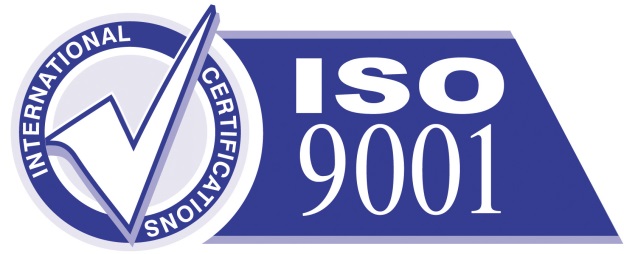
Nandani Services provide our clients ISO 9001:2015 Certification Services that implement and maintain Quality Management Systems so that all activities of the organizations are executed through a set system of procedures with reasonable amount of flexibility. We provide accredited ISO 9001:2015 certification services. ISO 9001 certification is the best way to declare quality of your working system among your customers and other stake holders.
These services improve business processes by the following:
- Applies to the processes that create and control the products and services an organization supplies.
- Prescribes systematic control of activities to ensure that the needs and expectations of customers are met.
- Is designed and intended to apply to virtually any product or service, made by any process anywhere in the world.
Benefits of ISO 9001:2015 Certification :
– ISO 9001 certification enhance customer satisfaction by meeting customer requirements.
– ISO certification enhance function efficiency of an organization
– ISO 9001:2015 implementations help to manage the resources effectively
– Once you obtained ISO 9001 certificate it creates path to improve the processes continually.
– ISO 9001:2015 certificate is now required in majority of government tenders.
– ISO 9001:2015 certification is Today passport of your organization for overseas business.
ISO 14001:2004(EMS)
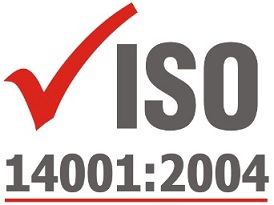
We are renowned service provider of ISO 14001 Certification Services that are based on ISO 14001 an internationally accepted standard. This international standard is designed to reduce environmental liability risks by developing effective Environmental Management System (EMS). These services assist our clients in achieving both objectives profitability and minimum environmental impact.
ISO 14001:2004 specifies requirements for an environmental management system to enable an organization to develop and implement a policy and objectives which take into account legal requirements and other requirements to which the organization subscribes, and information about significant environmental aspects. It applies to those environmental aspects that the organization identifies as those which it can control and those which it can influence. It does not itself state specific environmental performance criteria.
ISO 14001:2004 is applicable to any organization that wishes to establish, implement, maintain and improve an environmental management system, to assure itself of conformity with its stated environmental policy, and to demonstrate conformity with ISO 14001:2004 by,
a) Making a self-determination and self-declaration, or
b) Seeking confirmation of its conformance by parties having an interest in the organization, such as customers, or
c) Seeking confirmation of its self-declaration by a party external to the organization, or
d) Seeking certification/registration of its environmental management system by an external organization.
All the requirements in ISO 14001:2004 are intended to be incorporated into any environmental management system. The extent of the application will depend on factors such as the environmental policy of the organization, the nature of its activities, products and services and the location where and the conditions in which it functions.
ISO 18001:2007 (OHSAS)
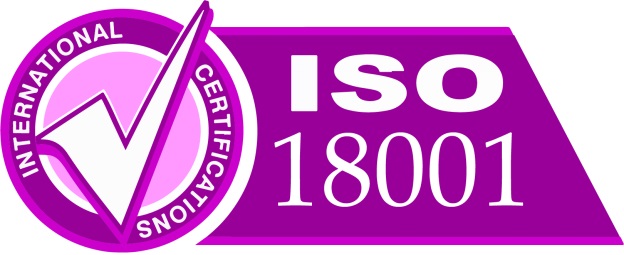
OCCUPATIONAL HEALTH AND SAFETY ASSESSMENT SERIES Occupational Health and safety management Systems – Specifications This standard OHSAS 18001 certification prescribes requirements for an OH&SMS to enable an organization to formulate its policies and objectives to protect its employees and others, whose health and safety may be affected by the activities of the organization. The extent of application depends on nature of activities, complexity of its operations. It is intended to help an organizations to control occupational health and safety risks. It was developed in response to widespread demand for a recognized standard against which to be certified and assessed.
What is OHSAS 18001:2007?
Organizations of all kinds are under constant pressure to comply with occupational health and safety regulations and perform in line with their policy. OHSAS 18001:2007 sets out the minimum requirements for a best practice occupational health and safety management system – helping organizations to control their hazards and risks, while boosting their performance. This standard also assists companies with their planning and policy formation, while ensuring they comply with the latest health and safety requirements and legislation. It applies to organizations and enterprises of all types and sizes, and accommodates various geographical, cultural and social conditions.
How does it work?
OHSAS 18001:2007 helps organizations to implement a sound occupational health and safety management system, so they can reduce risks to personnel and put the right safety measures in place. The standard also looks at the best ways to improve and maintain occupational health and safety systems, while perform in line with the company’s policy. By complying with OHSAS 18001: 2007, organizations can improve their overall working environment and the conditions of employment.
Who should buy it?
° Occupational health and safety officers
° Health and safety officers
° All organizations wishing to implement an occupational health and safety management system
° Health and safety inspectors
° Quality assessors
° Regulatory bodies
° Certification bodies
° Approval organizations
ISO 22000:2005(FSMS)
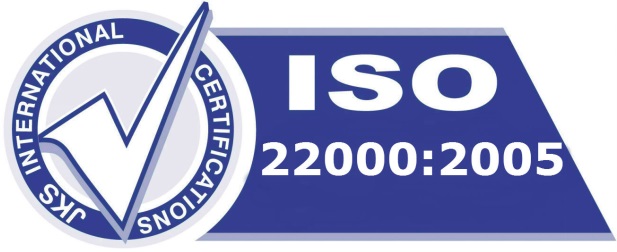
ISO 22000 is a new International Standards designed to ensure the safety of food supply chains worldwide while applying HACCP program, in addition to the harmonized applicable QMS and prerequisite program. ISO 22000 specifies a Food Safety Management System that includes interactive communication between supplier and producers and customers. It answered the growing demand for the certification of suppliers and gives more attention to quality aspects. The standard is applicable to all organizations directly or indirectly involved in one of the stages, related to the food chain, intending implementing a management system that would guarantee food safety for consumers. Various companies, from seed producers, meat or milk processors, etc., to food transportation companies and even retailers, private food unit or equipment manufactures for the food industry can successfully apply ISO 22000:2005, “Food Safety Management Systems – Requirements for any organization in food industry” It is applicable to all organizations, regardless of size, which are involved in any aspect of the food chain and want to implement systems that consistently provide safe products. The means of meeting any requirements of ISO 22000:2005 can be accomplished through the use of internal and/or external resources.
ISO 22000:2005 specifies requirements to enable an organization
— to plan, implement, operate, maintain and update a food safety management system aimed at providing products that, according to their intended use, are safe for the consumer,
— to demonstrate compliance with applicable statutory and regulatory food safety requirements,
— to evaluate and assess customer requirements and demonstrate conformity with those mutually agreed customer requirements that relate to food safety, in order to enhance customer satisfaction,
— to effectively communicate food safety issues to their suppliers, customers and relevant interested parties in the food chain,
— to ensure that the organization conforms to its stated food safety policy,
— to demonstrate such conformity to relevant interested parties, and
— to seek certification or registration of its food safety management system by an external organization, or make a self-assessment or self-declaration of conformity to ISO 22000:2005
ISO 27001:2005(ISMS)
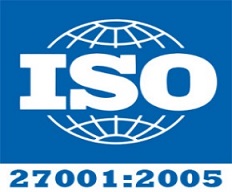
With our valuable industry experience, we are able to offer ISO 27001 Certification Services that provide a model for establishing, implementing, operating, monitoring, reviewing, maintaining, and improving an Information Security Management System. To suit the individual requirements of our clients, we customize these flexible services. ISO/IEC 27001:2005 covers all types of organizations (e.g. commercial enterprises, government agencies, not-for profit organizations). ISO/IEC 27001:2005 specifies the requirements for establishing, implementing, operating, monitoring, reviewing, maintaining and improving a documented Information Security Management System within the context of the organization’s overall business risks. It specifies requirements for the implementation of security controls customized to the needs of individual organizations or parts thereof.
ISO/IEC 27001:2005 is designed to ensure the selection of adequate and proportionate security controls that protect information assets and give confidence to interested parties.
ISO/IEC 27001:2005 is intended to be suitable for several different types of use, including the following:
° use within organizations to formulate security requirements and objectives;
°use within organizations as a way to ensure that security risks are cost effectively managed;
°use within organizations to ensure compliance with laws and regulations;
°use within an organization as a process framework for the implementation and management of controls to ensure that the specific security objectives of an organization are met;
°definition of new information security management processes;
°identification and clarification of existing information security management processes;
°use by the management of organizations to determine the status of information security management activities;
°use by the internal and external auditors of organizations to determine the degree of compliance with the policies, directives and standards adopted by an organization;
°use by organizations to provide relevant information about information security policies, directives, standards and procedures to trading partners and other organizations with whom they interact for operational or commercial reasons;
°implementation of business-enabling information security;
°use by organizations to provide relevant information about information security to customers.
ISO/TS 16949:2009
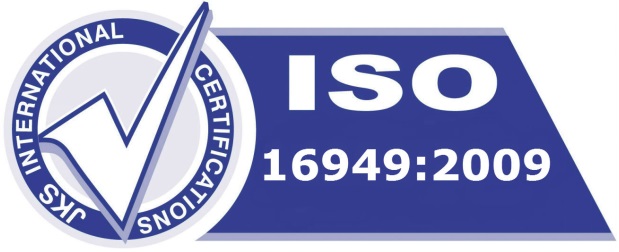
Quality Management System for Automotive Supplier
ISO/TS-16949 was jointly developed by the members of the international automotive task force (IATF) in close collaboration with the international organization for standardization (ISO). This standard specifies the quality system requirements for the design, development, production, installation and servicing of automotive related products. We have carved a niche as one of the trusted providers of Ts 16949 Quality Certification Services base in India. Our Ts 16949 Certification services are provided by the qualified team which is having in depth knowledge and experience in this field. With our unmatched ISO TS 16949 Certification services, we help clients in enhancing their business by achieving this certification without any hassle.
ISO/TS 16949:2009, in conjunction with ISO 9001:2008, defines the quality management system requirements for the design and development, production and, when relevant, installation and service of automotive-related products. ISO/TS 16949:2009 is applicable to sites of the organization where customer-specified parts, for production and/or service, are manufactured.
Supporting functions, whether on-site or remote (such as design centres, corporate headquarters and distribution centres), form part of the site audit as they support the site, but cannot obtain stand-alone certification to ISO/TS 16949:2009. ISO/TS 16949:2009 can be applied throughout the automotive supply chain.
